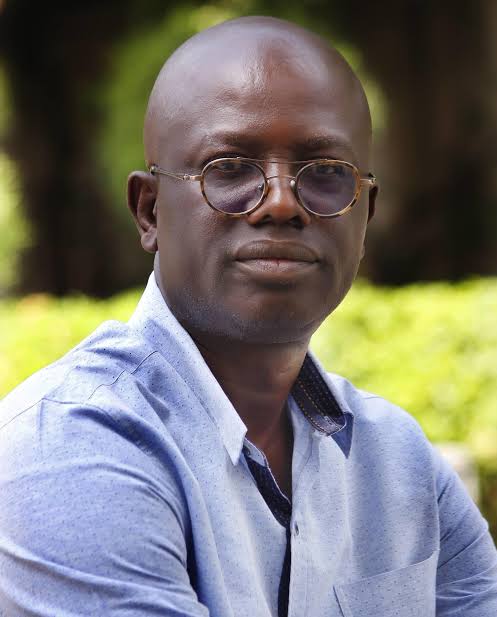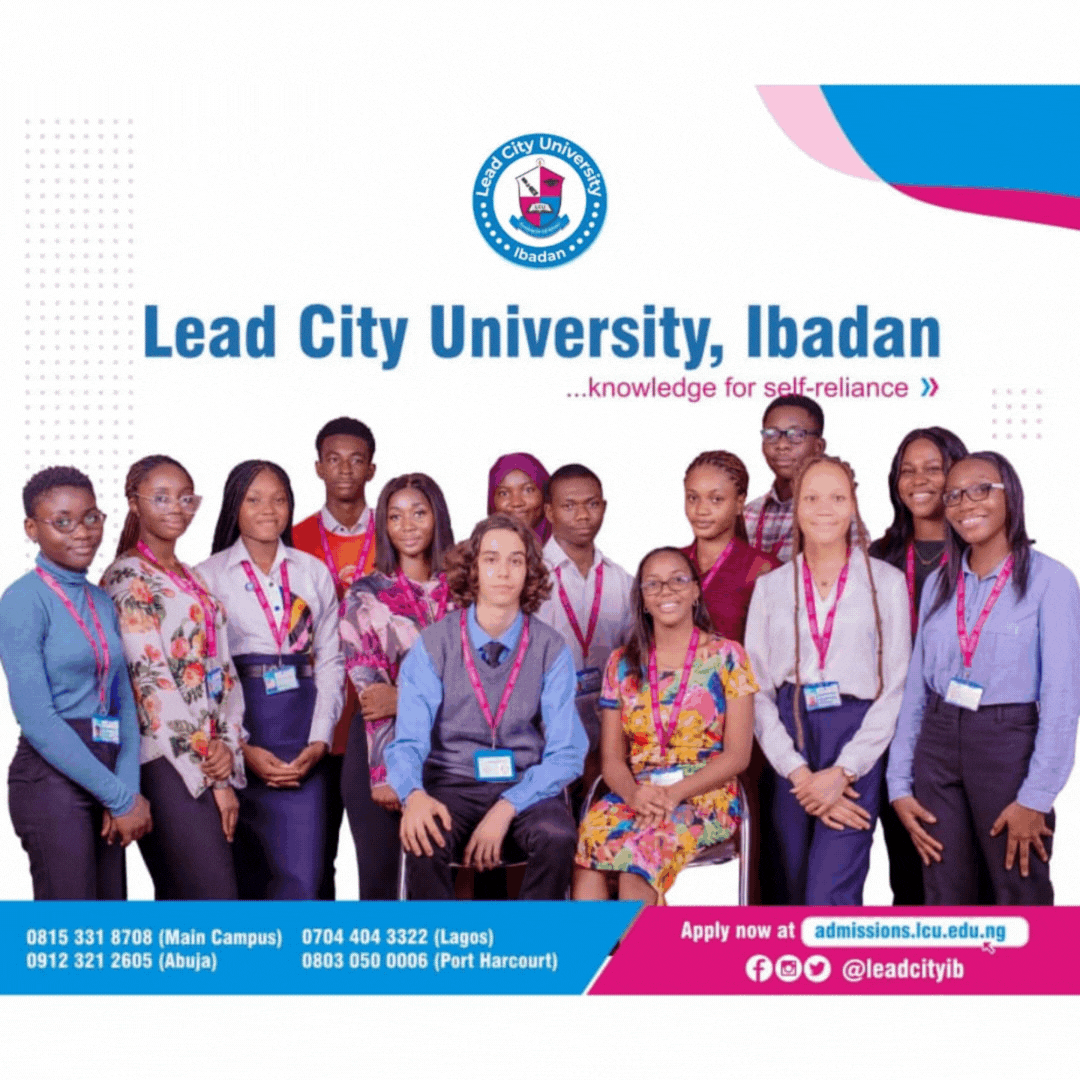By Olusegun Adeniyi
The 2023 general election is almost upon us. No fewer than 12,000 candidates sponsored by 18 political parties will contest for 109 Senatorial seats, 360 House of Representatives memberships, 993 State House of Assembly positions, 28 governorships, and the lone office of the President. An estimated 95 million registered voters are also expected to cast their ballots in 176,846 polling units across 774 local government areas in the country. Sadly, at a most difficult period in the life of our nation, there is nothing to suggest that these office seekers recognise the enormity of the challenge ahead or that they are even thinking of solutions. I will come back to this issue another day.
Meanwhile, the Independent National Electoral Commission (INEC) chairman, Mahmood Yakubu, has renewed his commitment to a credible and verifiable election process supported by technology, “which guarantees transparent accreditation and upload of polling unit results for citizens to view in real-time on election day.” He has also reaffirmed that the deployment of a Bimodal Voter Accreditation System (BVAS) and INEC Result Viewing Portal (IReV) remain sacrosanct. Many stakeholders consider this a game changer in Nigeria’s electoral process. Yakubu has gone to great lengths to deploy technology for the purpose of restoring integrity to the ballot box in Nigeria. But no matter how credible elections are, if losers (and there will always be losers) opt to discredit the outcome, democracy is imperilled. That was the key take-away from the dialogue session of the Hubert H Humphrey Fellowship Alumni Association, Nigeria, held in Abuja last Thursday.
Founded in 1979 in honour of Hubert H Humphrey, a former American vice president, senator, and mayor of the city of Minneapolis, the prestigious Fellowship is designed by the State Department to annually invite to the United States seasoned mid-career professionals (in diverse fields) from Euroasia, Africa, the Caribbean and Middle East for an intellectual programme. Participants are expected to spend one academic year in a leading American university to “collaborate and participate in fostering community engagement” to enable them to “advance development and good governance in their respective countries.” At the last count, about 80 Nigerians have participated in the programme, including former Lagos State Governor, Akinwunmi Ambode, former presidential spokesman and ARISE TV anchor, Reuben Abati as well as top people in both the public and private sectors.
At the invitation of my friend, Andy Ezeani (a 2000/2001 Humphrey Fellow at the University of Maryland), I was at their Nigeria Alumni 2022 seminar last Thursday. With the theme, ‘Promoting electoral integrity in Nigeria: Prospects and challenges’, speakers included Rolf Oslon, the political counselor at the United States embassy in Abuja, Samson Itodo, YIAGA Africa executive director, Lawrence Alobi, a retired police commissioner and Festus Okoye, INEC national commissioner in charge of information and publicity. Okoye also spent a year in the nineties at the University of Minnesota as a Humphrey Fellow. I was invited as a guest to speak on the anatomy of public distrust in election management.
While session interactions were robust, the most profound contribution was made by Oslon who said he was serving in Nigeria for a second time, having been the political/economic section chief at the U.S. consulate in Lagos from 2011 to 2014. Apparently based on his experience in the country, Oslon warned against an emerging trend as we inch towards the 2023 general election: “It is essential that candidates and their parties – as well as all their supporters seeking to help them win election – refrain from brash assertions of victory that suggest defeat is only possible if there is fraud. There is no true democratic election in which the outcome is foretold. Before I became a diplomat, I used to work in American politics in Washington, and I have witnessed numerous elections in which a particular candidate seemed certain to win, based on some combination of various factors – a very favorable partisan identification of voters in the district, city, or state; polling data that appeared to show a very large, insurmountable lead over the opponent; or perhaps the fact that the candidate was the incumbent, who had been elected to that same office, possibly several times. But in some cases, the very unexpected happens. That’s democracy. And candidates and parties that seek to run for public office must accept one fundamental truth – losing is always possible. If you’re not willing to accept the possibility that you might be defeated, then you should not be running for office in the first place. We therefore call on all parties, candidates, and their supporters to avoid language that tries to ‘guarantee’ victory. It is entirely reasonable to feel confident about your or your candidate’s chances – it’s up to you if you want to spend precious campaign time being confident rather than focusing on the hard work necessary to actually win – but no democracy, Nigeria’s included, is well-served if millions of its citizens believe only one legitimate outcome on election day is possible. Steer clear of that kind of rhetoric, and Nigeria’s electoral process will be much the better for it.”
Anybody who has followed the rhetoric of the leading presidential contenders in Nigeria and their supporters cannot but agree with Olson, although there is a problem in his own backyard. Most countries, including Nigeria, look up to the US as a beacon when it comes to democracy anchored on the rule of law. But even there, the integrity of elections is being questioned by a generation of bad losers. Former President Donald Trump (who has declared his intention to run again in 2024) has made it clear that the only election he would consider credible is the one he wins. Not only does he have millions of supporters who believe everything he says, Nigerian politicians and their supporters are faithful disciples of the Trump doctrine when it comes to acceptance of electoral outcomes.
In a recent study, ‘Sore Losers: Does Terrorism and Approval of Terrorism Increase in Democracies When Election Losers Refuse to Accept Election Results?’, James Piazza, a professor of political science at Penn State College of Liberal Arts, argued that loser’s consent at most elections is fragile and “when it is broken the risk of political violence increases.” Quoting one attendee at an American right-wing rally who recently asked, ‘How many elections are they going to steal before we kill these people?’, Piazza wrote on the danger posed to democracy and the rule of law when politicians and their supporters take every election as a zero-sum game. This was the point made by Olson that we need to take seriously as we approach the 2023 general election in Nigeria.
At the Hubert Humphrey session, I validated Olson’s point by recounting what happened almost 30 years ago. I crave the indulgence of readers to repeat my personal experience that I once shared on this page. In March 1993, I was a Senior Staff Writer with African Concord magazine and member of the editorial team selected to cover the Social Democratic Party (SDP) presidential primaries in Jos, Plateau State where our chairman, the late Bashorun M.KO. Abiola was a serious contender.
Before we left, we decided at our editorial meeting that the result of the convention scheduled to be held on a Saturday and probably extended till Sunday would be our cover story for the week beginning Monday. It was a gamble given the level of technology in colour printing at that time. The bromide for the cover page had to be ready for press latest by Thursday morning. Otherwise, the Monday edition would be late. Yet, we were contemplating a cover featuring an event that would happen at the weekend. I did not have to wait long before my then editor revealed the game plan: the bromide of the cover would be printed ahead with only the photograph of our chairman and the caption, ‘How Abiola Won’.
I understood the sentiment behind such a wishful headline because we could not possibly be neutral when our boss was involved. But I still felt that we were taking a reckless gamble. I suggested that we include on the magazine cover the photographs of Abiola, Atiku Abubakar and Babagana Kingibe and go with the caption, ‘How the battle was lost and won’. At that period, Atiku was being backed by the late Shehu Musa Yar’Adua while Kingibe, the sitting SDP national chairman had been endorsed by 12 of the party’s 14 governors. In fact, most pundits were predicting a straight fight between Abiola and Kingibe in which either could win. My suggestion was turned down.
Shortly after the meeting ended, I went back to the editor to explain my misgivings. I told him I had no problem with putting Abiola on the cover page since he owned the publication but projecting him as winner was too risky. My editor insisted that no matter what happened in Jos, Abiola was the only photograph he would put on the cover. ‘What if he loses?’ I asked. His reply: “Then, I will simply change the headline to ‘How Abiola Was Rigged Out’.”
The more I reflect on that experience the more I come to terms with the fact that the average Nigerian is a bad loser. Yes, INEC must prioritize election integrity so that voters go to the polls knowing their votes will count. I also subscribe to the notion that the electoral process must be secure and fair from beginning to the end. However, our politicians and their supporters must also understand that democracy is not just a game of numbers as they glibly say when things go their way. It is also a process of inquiry by which consensus is formed for the advancement of society. To that extent, they must accept that every contest comes with two possibilities: Victory or defeat. And until they imbibe that spirit, there will always be a problem.
It is normal for office seekers to be optimistic of victory. It is also legitimate for the media and members of civil society to take sides. But when we begin to project that candidates can only lose elections if ‘rigged out’, we are unwittingly putting the entire system in jeopardy. As we approach 2023, we should do everything to guard against such hubris.
Gbajabiamila on Tertiary Education
Yesterday, I was at the two-day ‘national summit on tertiary education reform’ organized by the House of Representatives Speaker, Hon Femi Gbajabiamila. With participants drawn from the academia, civil society, government, and private sector, all the issues militating against tertiary education in Nigeria were discussed. There were also several suggestions on how to address these problems. Unfortunately, before my own session, the Academic Staff Union of Universities (ASUU) President, Prof Emmanuel Osodeke, who had made an intemperate contribution during the panel discussion on ‘Modernising the accreditation of Polytechnics, Monotechnics and Colleges of Education to encourage enrolment, improve training outcomes and enhance employability’ had left. I had planned to engage him on some of the issues on which ASUU has ideological fixations.
With the Vice Chancellors of several Universities and leading professors in attendance, the sessions were engaging, and the broad consensus was for true autonomy for our institutions of higher learning. Interestingly, it was at the summit that I received a news alert about the concurrence by the Senate of the Students Loans Bill sponsored by Gbajabiamila that had been passed by the House of Representatives earlier in the year. If properly implemented with other ideas, it could be a game changer in the sector. One of the suggestions yesterday was for the federal government to provide grants while universities are allowed to run their own affairs.
Apparently because of my book, ‘NAKED ABUSE: Sex for Grades in African universities’, I was asked to present a paper on ‘Reforming methods of sanctions, investigations and punishment to prevent academic corruption as well as end sexual coercion’. As I pointed out, stripped of all pretensions, we are talking about unequal power structure in which coerced sex is the currency of negotiation. But we cannot continue to tolerate or accept such debasement of both the dignity of our women and the integrity of our tertiary education.
There are several reasons why we must confront this problem. One, to the extent that the culture within the educational environment usually mirrors the values of the broader society, it is in our interest to tackle transactional sex on our campuses. Two, an unpleasant experience on campus can have a major effect on the self-esteem of victims, and on their development later in life. For instance, such experience can trigger future social-health issues like depression or trauma with dire consequences. Besides, as I also explained, transactional sex on campus debases scholarship and devalues the achievement of our women.
For solutions, I canvassed the need to mainstream and strengthen gender teaching and learning, as suggested by one of the participants at a Webinar held following the publication of my book. Since patriarchal norms and values fuel gender-based violence, an understanding of the power dynamics within our society should be added to the curriculum in our tertiary institutions. While ASUU must collaborate with government and other critical stakeholders to find reasonable and feasible solutions to the funding of public universities in Nigeria, it is also important that we all put in place measures that would make our campuses a safe place for female students, I further argued.
On the panel of discussants for my paper were chair of the House of Representatives committee on electoral matters, Hon Aishatu Jubril Dukku who was Minister of State for Education under the late President Umaru Musa Yar’Adua, Executive Secretary of the National Universities Commission (NUC), Prof Abubakar Adamu Rasheed, Vice Chancellor of Bayero University, Kano, Prof Sagir Adamu Abbas, Deputy Vice Chancellor (Development Services), University of Lagos, Prof Ayodele Atsenuga, legal practitioner and former Lagos State Commissioner, Dr Muiz Banire and political commentator, Dr Olatokunbo Otitoju. While all of them identified the critical challenges on this vexatious problem, it was Atsenuga who raised an issue that needs to be urgently addressed. Because of the absence of a reliable database of university lecturers in Nigeria, according to her, some lecturers who face disciplinary actions (suspension or outright dismissal) on one campus are easily recycled by simply moving to another university where proper checks are most often not made.
Interventions from the sessions were robust but Prof Okey Ikechukwu who presented a paper on ‘Avenues for transformative public-private partnerships and collaborations in the education sector’ warned that we should go beyond periodic seminars and workshops to implementing most of the recommendations that are already available. Former Vice Chancellor of the Federal University of Technology, Minna, Professor Hamman Tukur Sa’ad whose intervention on the issue of funding I referenced a few months ago, was also one of the discussants on how we can identify and implement pragmatic approaches to funding public tertiary education in Nigeria.
Overall, I commend Gbajabiamila for his interest in tertiary education. We must recall that he was instrumental to the recent suspension of ASUU strike. Now, his passed billaims to enable students in institutions of higher learning have access to financial assistance through interest-free loans from the Nigerian Education Bank that will be established. But I must add very quickly that Gbajabiamila is not trying to re-invent the wheel. The military government of General Yakubu Gowon had also established the students’ loans scheme, as well as work study programmes, scholarship schemes for indigent students, grants etc. There were also bursaries at the level of states. That all these schemes have been compromised or abandoned is why the sector is what it is today.
Azuayi Ewuga’s Burial
After six months of needless bureaucracy that has only added to the agony of her bereaved parents, Cameroonian authorities have finally released the remains of Senior First Officer Azuayi Simi-Yel Ewuga for burial in Abuja on Saturday. Daughter of Senator (and former Minister) Solomon Ewuga, the 33-year-old pilot died on 11th May this year in an aircraft belonging to Caverton Aviation Cameroon, with 11 passengers on board. The aircraft was flying from Yaounde Nsimalen Airport to Belabo, in the eastern part of the country when it crashed. Caverton Aviation Cameroon is a subsidiary of the Nigerian Caverton Offshore Support Group, which also controls Caverton Helicopters. The late Azuayi was the younger of the two daughters of Ewuga who was understandably still distraught when I visited him on Monday. May God continue to comfort the family.
You can follow me on my Twitter handle, @Olusegunverdictand on www.olusegunadeniyi.com
Share your story or advertise with us: Whatsapp: +2347068606071 Email: info@newspotng.com
















